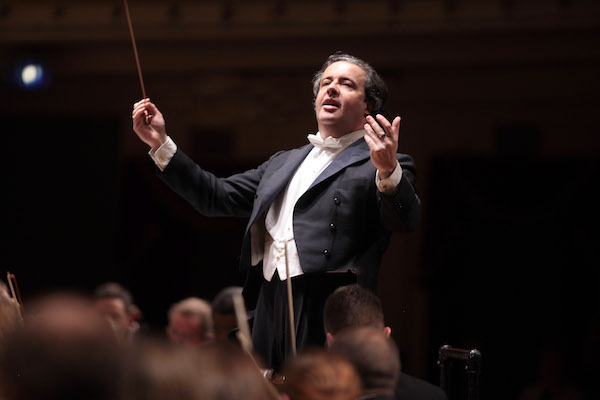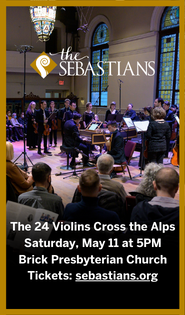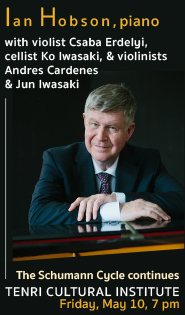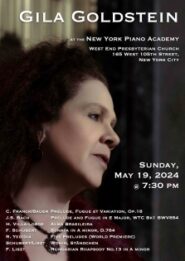Teatro Real Orchestra serves up an impassioned evening
The Orchestra of the Royal Opera Madrid (Teatro Real) returned to New York on Monday for a gala concert at Geffen Hall. Under Juanjo Mena’s baton, the orchestra played with finesse and sensitivity, even when in impassioned mode, for a superb and fascinating evening of music.
The Suite from Alberto Ginastera’s ballet Panambí, was the first work on the program. Composed in 1937, the work was Ginastera’s Opus 1 and representative of his self-described Objective Nationalism style. The plot of the ballet is based upon a legend of the Guarani people of South America in which a supernatural struggle between good and evil plays out against the backdrop of a love story.
Mena and the Teatro Real captured both the subtlety and the drama of the story with playing that was as captivating as it was beautiful. The mysterious sounds of a moonlit night were detailed in shimmering, scintillating detail. Equally compelling were the gentle sighs of the strings expressing the sadness of a thwarted lover. When stronger passions were called for, Mena summoned ferocity from the orchestra, propelled by the Teatro Real’s fine percussion section.
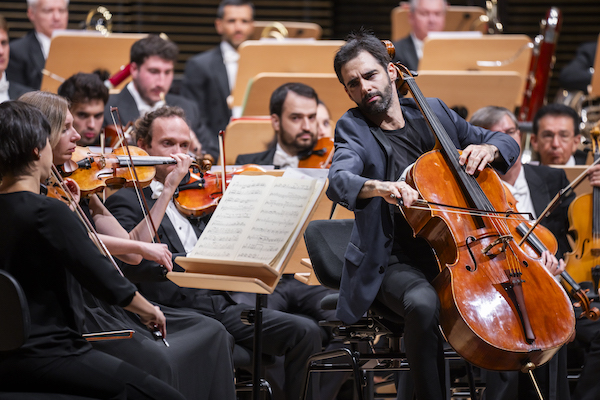
Dvořák’s Cello Concerto in B minor followed with Pablo Ferrández as soloist. The cellist was a finalist in the XV International Tchaikovsky Competition in 2015. His technique is impeccable and he plays with an intensity enhanced by the elegant, sinewy richness of the sound which he draws from his instrument, the Stradivarius “Archinto” 1689.
Soloist and orchestra instilled Dvořák’s melodies with sweep and grandeur, but it was the intimate moments when they drew the audience into the music that provrf most compelling and what made this performance so memorable.
For an encore, Ferrández played Pablo Casals’s arrangement of “The Song of the Birds,” a traditional Catalan carol, with which the master often ended his recitals. As in the quieter passages of the Dvořák, there was complete stillness in the hall as Ferrández played this siple beguiling tune.
Earthier passions were on display in Manuel de Falla’s El amor brujo performed in the original 1915 version. The work was originally conceived as a gitanería, or danced gypsy entertainment in two scenes for dancers, actors and cantaora ,or flamenco, singer. When this proved unsuccessful, Falla reworked the story, replaced the cantaora part with three songs for mezzo-soprano and expanded the orchestration.
There were no dancers and actors on stage for this performance, only flamenco artist Esperanza Fernández. For those only familiar with the mezzo-soprano version of El amor brujo or its later adaptions, this was a revelation.
Fernández’s voice, whether spoken or sung, may not be beautiful in the conventional sense, but it was an ideal conduit to express the primeval emotions and earthiness of the work. Equally magnificent was the force and intensity with which Fernández stalked the stage and danced. The movement of her arms was as captivating as the sound of her voice. Mena and the Teatro Real reveled in Falla’s score, but Fernández extraordinary artistry defined this performance.
The program seemed to have been built on the principle that nothing succeeds like excess. Although in fairness, the orchestra had scant time on stage alone until it appeared en masse to perform both Suites from Ravel’s Daphnis et Chloé. The composer’s orchestration afforded the experience to savor not only the orchestral as a whole, but also individual musicians and sections.
The Teatro Real’s excellent woodwinds and brass, especially the horns, were now in the spotlight, as opposed to being supporting players. Concertmaster Gergana Gergova displayed her silken tone in the score’s violin solos. The strings impressed with the elegance of their playing and the intriguing complexity of their sound. All combined to capture the brilliance in Ravel’s wonderful score.
The evening culminated in an ecstatic release of energy that was exhausting but undeniably exhilarating.
